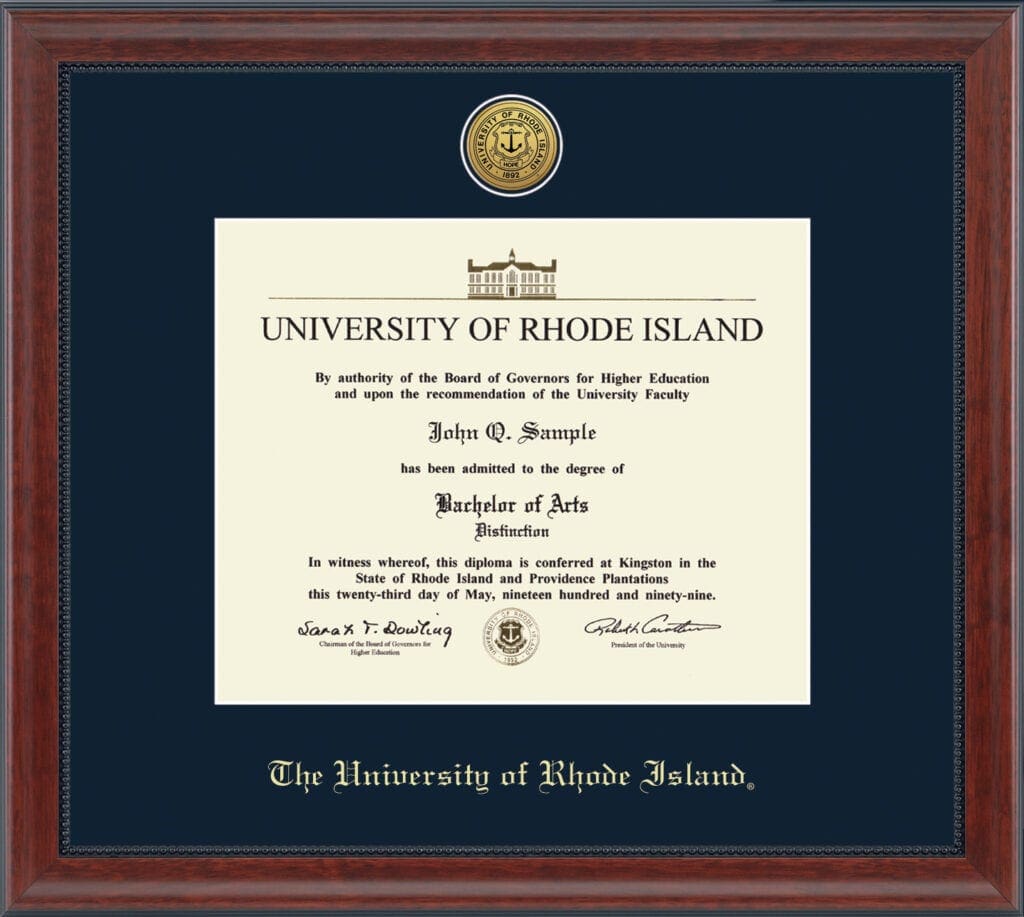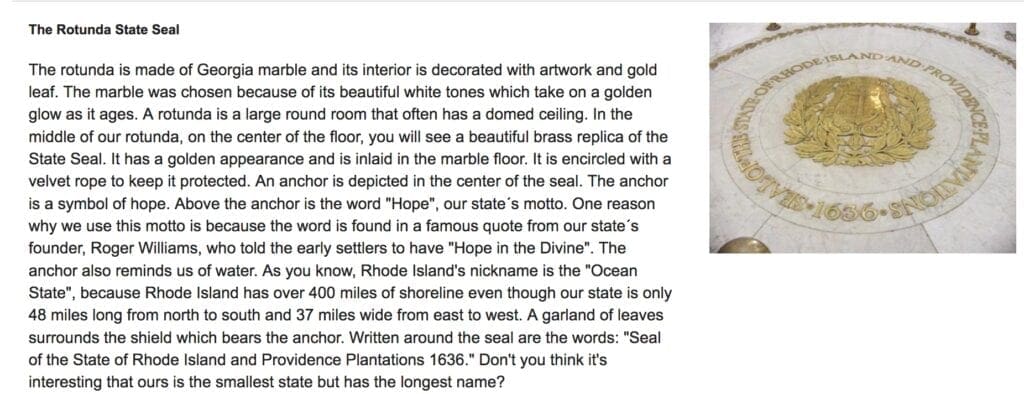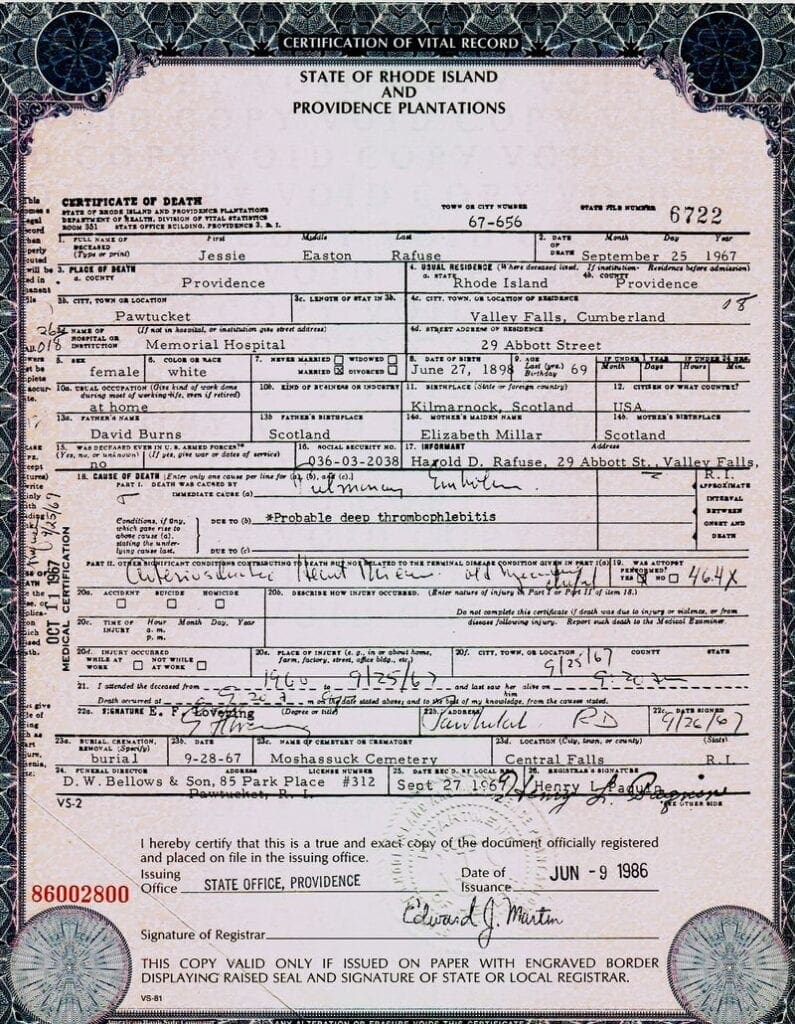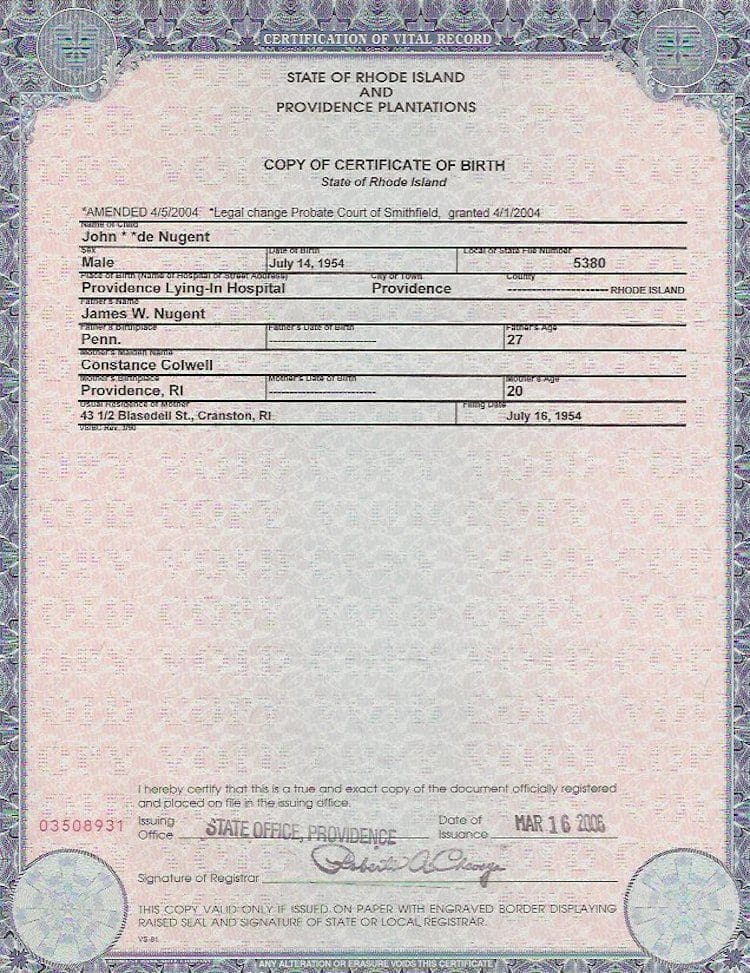Search Posts
Recent Posts
- Rhode Island Weather for June 5, 2025 – Jack Donnelly June 5, 2025
- RI Veterans: Did you know? 05.06.25 (Rental help, events, resources) – John A. Cianci June 5, 2025
- We Cook! Mill’s Tavern Rosemary-Lemon Statler Chicken, Yukon Golds, Haricot Vert and Dijon Demi June 5, 2025
- ICE arrests nearly 1,500 in Massachusetts. First part of “Operation Patriot” – Nantucket Current June 5, 2025
- Rhode Island Weather for June 4, 2025 – Jack Donnelly June 4, 2025
Categories
Subscribe!
Thanks for subscribing! Please check your email for further instructions.

Breaking: Gov. Raimondo will delete “Plantations” from RI docs, websites, etc. by Executive Order today at 3pm.
Gov. Raimondo will not wait for voters to decide. According to the Providence Journal, she will issue an Executive Order today removing the word “Plantations” from official forms, documents, and state websites. It is expected the issue will continue on to the voters in the fall for an official vote on changing the state name.
Earlier this month, the Governor was asked about the name change at a Covid-19 press event. She said she supported it being put on the ballot, but if it was voted down, she would consider then changing it by Executive Order, herself. This will be Gov. Raimondo’s 48th Executive Order in 2020.
What did the voters say in 2010?
In 2010 the question was presented to Rhode Island voters. With 1/4 of a million votes, “changing the official name of the State from “State of Rhode Island and Providence Plantations” to “State of Rhode Island” was defeated 77.9% to 22.1%. No city supported the action with more than 31% of voters. The vote followed a poll taken by WPRI showing “strong support” for keeping the name as is, with a 71% to 13% result.
Prior to that, in 2009, a bill submitted by Rep. Joseph Almeida was presented, with support by Rep. Grace Diaz and Rep. Anastasia Williams.
Keith Stokes, a leading authority in black history in America, and in Rhode Island opposed the effort at the time, saying, “… I do recognize that the word “plantations” might legitimately be interpreted by some as evoking a negative reference to the plantations of the ante-bellum South. However, I also know that removing the name will not remove the past practices of history, right or wrong. This would provide an opportunity for educational enlightenment and open discussion that would bring Rhode Islanders together rather than divide them.”

The sankofa bird, from Akan Art, is popular in African-American symbolism, representing the need to reflect on the past to build a successful future.
2020…
RINewsToday reached out to Stokes this morning for his comment: “Black History Matters. I only suggest people and the news media take the time to learn about our deep African heritage history & roots in Rhode Island so that any decisions that are made are thoughtful & informed. He provided this link for more information of interest to all on the subject of Rhode Island African Heritage History… https://bit.ly/316Kb1I
Representative Almeida said, “It’s high time for us to recognize that slavery happened on plantations in Rhode Island and decide that we don’t want that chapter of our history to be a proud part of our name.”
Jim Vincent, NAACP-Providence
“I think it is fantastic that the Governor via Executive Order will remove the word Plantations from state documents and will support a ballot question to remove Plantations from the official state name! Painful references to slavery from a state who played such a prominent role in the slave trade must be made if we are to have true inclusiveness going forward in the Ocean State, said Jim Vincent, President of the NAACP, Providence Chapter.
Ray Rickman, Executive Director, of Stages of Freedom, and former Deputy Secretary of State and Democratic State Representative:
“It is with exuberance and thankfulness from the bottom of my heart that I commend Governor Gina Raimondo for her extraordinary executive order to eliminate Providence Plantations, part of our Constitutional name since 1663, from gubernatorial orders and citations, websites, and paychecks. The Governor’s bold and progressive action should have significant influence on voters in November when it goes to a statewide vote. In 2010, Rhode Islanders behaved badly by using a ballot question to reaffirm the use this racially charged term.
During this summer of Black Lives Matter, the Governor’s moral stance should serve as guidance and inspiration for all one-million of us to work for a just society. I can think of a hundred issues in the life of this state and the structure of its government that need institutional change. We spend virtually nothing to improve the health and well-being of minorities who are 24% of our population. We need to remove its mass incarceration practices and laws. We have a parole board that must operate in full public view, so that it will cease its racist practices. A vacant seat on the Rhode Island Supreme Court gives Governor Raimondo a shining opportunity to immediately integrate the State’s highest court. The enormous symbolism of deleting Plantations from the State’s name is to be praised, but addressing the high unemployment of Black, Latino and Native American youth through the Commerce Department would put the Governor in the history books for showing concern for those whose votes made it possible for her to be Governor.
It is my hope to be poised with further praise for the Governor when she continues to use her executive pen and appointment power to change Rhode Island into a state that fully acknowledges and values its minority population.”
A word…
The Charter of 1663, which established Rhode Island’s sovereignty, bound Rhode Island together with the northern mainland towns of Warwick and Providence (the Providence Plantations), forming the colony of Rhode Island and Providence Plantations, a designation used decades before the first African slaves arrived in 1696. The word “plantations” is an English word meaning “colony”.
Rhode Island enacted “the first conscientious objection law in America (1673), an Indian anti-slavery law (1676), and the first slavery non-importation law in America (1774). Although these early statutes did not prohibit slavery, they marked the beginning a succession of laws that led to abolition”, according to Newport-Now.
Providence Mayor Elorza did it first
Providence Mayor Elorza ordered the word “plantations” scrubbed from Rhode Island’s official state name on official city documents prior to Black Lives Matter protests, and just before the recognition of Juneteenth, saying, “Though this does not correct generations of pain and violence against our Black and Indigenous residents, this Juneteenth we can take this step to build a better, brighter future together.”
Senate Resolution
Sen. Harold Metts, a Providence Democrat, introduced legislation on Wednesday to give voters another chance to change the state Constitution to eliminate a word from the state name that many Black Rhode Islanders find offensive. The wording of the bill includes, We, the people of this State which state shall henceforth be known as the state of Rhode Island, grateful to Almighty God for the civil and religious liberty which He hath so long permitted us to enjoy, and looking to Him for a blessing upon our endeavors to secure and to transmit the same, unimpaired, to succeeding generations, do ordain and establish this Constitution of government”.
More substantive steps to be announced
Other actions will be announced, including mandatory bias training for state departments, the formation of a community outreach team, and body cams for all RI State Police. The state will do a study of all state contracting practices to see if minority-owned businesses are being given equal opportunities to procure contracts. Some conversation has mentioned the appointment of a diversity czar for RI. Whether or not the Governor will mention changing the police bill of rights or discuss decreased funding for police departments is unknown.
Response from RI General Treasurer Seth Magaziner:
“In the coming weeks, the Rhode Island General Treasurer’s Office will remove the words “and Providence Plantations” from the state’s checks. We will also remove those words from our letterhead, citations, and other office correspondence.
For African Americans & other People of Color, plantations are synonymous with centuries of slavery and violence. In my discussions with African American leaders, they’ve explained the chilling feeling they have when seeing the word “plantations” on state documents & checks.
As a student of our State’s history, I know that in 1663 when “The Colony of Rhode Island and Providence Plantations” received its Charter, the word “plantations” was not necessarily connected with slavery. However, words and symbols can take on new meanings over time. As a Rhode Islander with Jewish heritage, I know all too well that the swastika, originally a symbol of spirituality and peace, became a symbol of profound hatred and evil.
Removing the word “Plantations” does not erase our history; a history that includes many Rhode Islanders who profited from slavery, and also the heroic sacrifice of many Rhode Islanders who fought to end it.
Removing the word “Plantations” is also not enough to correct the systemic injustices that hold back too many people of color in our state. Much more work remains to be done. But my hope is that this change will send a message to all people, regardless of race or background, that Rhode Island strives to be a safe and welcoming place for all.
Besides, everyone calls us just “Rhode Island” anyway.”
Diplomas for RI State universities/colleges, as an example of documents:

What will become of the RI State Seal replica in the center of the RI State House Rotunda floor?

Official Birth & Death Certificates:
Governor’s Press Release:
| Governor Raimondo Unveils ‘RIse Together’ Vision for a More Equitable Rhode Island |
| Governor will sign Executive Order removing “Providence Plantations” from executive documents |
| PROVIDENCE, R.I.– Governor Gina M. Raimondo will be joined by advocates, community leaders, elected officials, and members of her cabinet today at 3 p.m. at Billy Taylor Park in Providence to unveil her ‘RIse Together’ vision for a more equitable and resilient Rhode Island and announce immediate steps her administration will be taking. Today’s announcement comes after several weeks of meetings with community and youth leaders and is the first step in a series of actions to combat racial inequities in Rhode Island. The Governor will also sign an Executive Order today removing the phrase “Providence Plantations” from gubernatorial orders and citations, executive agency websites, official correspondence, and state employee paystubs. “Our work to dismantle systemic racism in Rhode Island did not start today and it will not end today, but we can rise together and make meaningful progress toward racial equity now,” said Governor Raimondo. “Rhode Island was founded on the principles of acceptance and tolerance, and our state’s name – and actions – should reflect those values. The steps I am announcing today are just the beginning, and I am fully committed to continuing to work alongside the community in stamping out individual and institutional racism in our state.” As part of the ‘RIse Together’ vision, the Governor has: Directed the Department of Administration to institute mandatory implicit bias training for all Executive Branch employees.Directed the Department of Administration to build a plan for more comprehensive equity training.Directed the Rhode Island State Police to form a Community Outreach Team that will be tasked with working with community leaders to find ways for departments to better engage the Rhode Islanders they serve. Directed Rhode Island State Police Colonel James Manni to develop a plan and explore grants and other funding sources to equip all State Police officers with body cameras, building on the existing efforts within the State Police to increase accountability. In addition, the Department of Administration is currently undergoing a comprehensive study of all state contracting practices to ensure that minority-owned businesses have an equal shot at procurement opportunities – the first of its kind in 25 years. The Governor will provide more details on the ‘RIse Together’ vision at 3 p.m. today at Billy Taylor Park. |
Today’s Executive Order press conference will be held at 3pm at the Billy Taylor Park, 124 Camp Street, Providence.
This is a developing story – check back for updates being done throughout the day.


